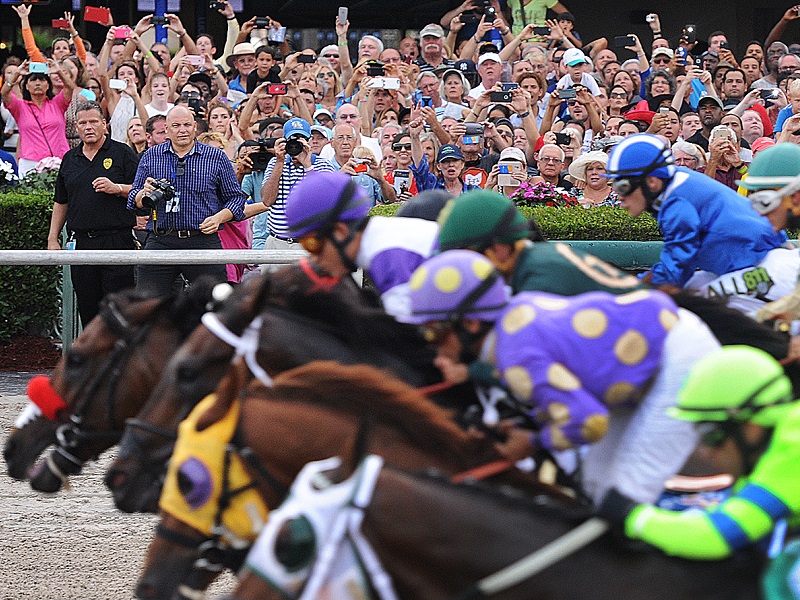by Jeremy Plonk
January 29, 2018

People get a lot of assumptions wrong in this Opinion Age in which we live. If you believe the internet (your first mistake), you’re absolutely certain that the Rainbow Six is a terrible concept; that Gulfstream Park post-time “drags” are the last straw; that you can’t run cheap races at “Championship” meets; and that the Pegasus World Cup was a race destined for failure and ill-conceived.
Then came this past weekend. Reality check. The votes are in, and assumptions starkly wrong.
Gulfstream Park handled $70 million over two days Saturday and Sunday based squarely on those four principles. You can gripe all you want on message boards, the bottom of click-bait articles or to your minions of Twitter followers, but you can no longer claim these four areas are without merit.
You may not like exactly how this quartet of apparent excess has played out, but you can’t dispute its success. Too many gimmick bets drain the betting pool. Too much time between races and post-time overlaps will kill the fanbase. Too many cheap races will make Gulfstream just another Calder. Too much purse money for one race is just a wasted marketing gimmick better-used elsewhere.
Really?
Seventy-million bucks, folks.
What Gulfstream Park has done has flat-out worked. Sure, there were growing pains and transitions that traditionalists don’t like. I didn’t care for, or properly forecast the success of, some of these items either. But because I didn’t like them or see their merit at one time doesn’t mean I have to dig my heels in and ignore the reality.
Maybe you, and even sometimes I, don’t care for these four tenants of GP success, but the masses overwhelmingly do. So instead of being bull-headed about why one still thinks they are the wrong path, maybe we can deconstruct the anti-argument to understand why they have succeeded.
First, jackpots work. You need to look no further than Power Ball to realize that. The pot can be $10 million and there’s no talk about it. Then it hits $200 million and it leads every local and national newscast. As if $10 million wasn’t enough to play a buck ticket? At 20-cents-a-pop, people figure that's the harm...from 20-cent bettors to whales who can get more coverage.
Second, we’re not really as indignant about post-time drags as you’re lead to think. The more time there is to bet, the more that gets bet. You’d like to say a firm, early post time draws the same handle, but it doesn’t. That’s why tracks stopped the gate-load stop time on wagers soon after it was implemented. Going quick loses handle; so going late would logically increase handle. Even if it’s annoying.
Third, size matters. Field-size matters, that is. There’s not one single factor bigger to the success of a wagering opportunity than field size. An exacta, trifecta or superfecta in a 12-horse maiden claimer averages significantly more return than those in a Grade 1 stakes field of 6. It’s not about consumer habits as much as it is about math when it comes to returns. Then, those returns are what catch bettors’ eyes and wagering attention.
Fourth and finally, the consternation about the inflated purse of the Pegasus World Cup, or how they even go about getting to it through the buy-ins and “poker-like” playing of the owners, has succeeded mightily through two editions. No one thought you could top Arrogate and California Chrome from the inaugural. Instead, we followed with the top 5 finishers of the Breeders’ Cup Classic in addition to a champion mare, a world-class sprinter/miler, a longshot who won the G1 Clark, and an international invader with BC Classic black-type in his history.
Now, you're welcome to go back to the internet and complain about this.